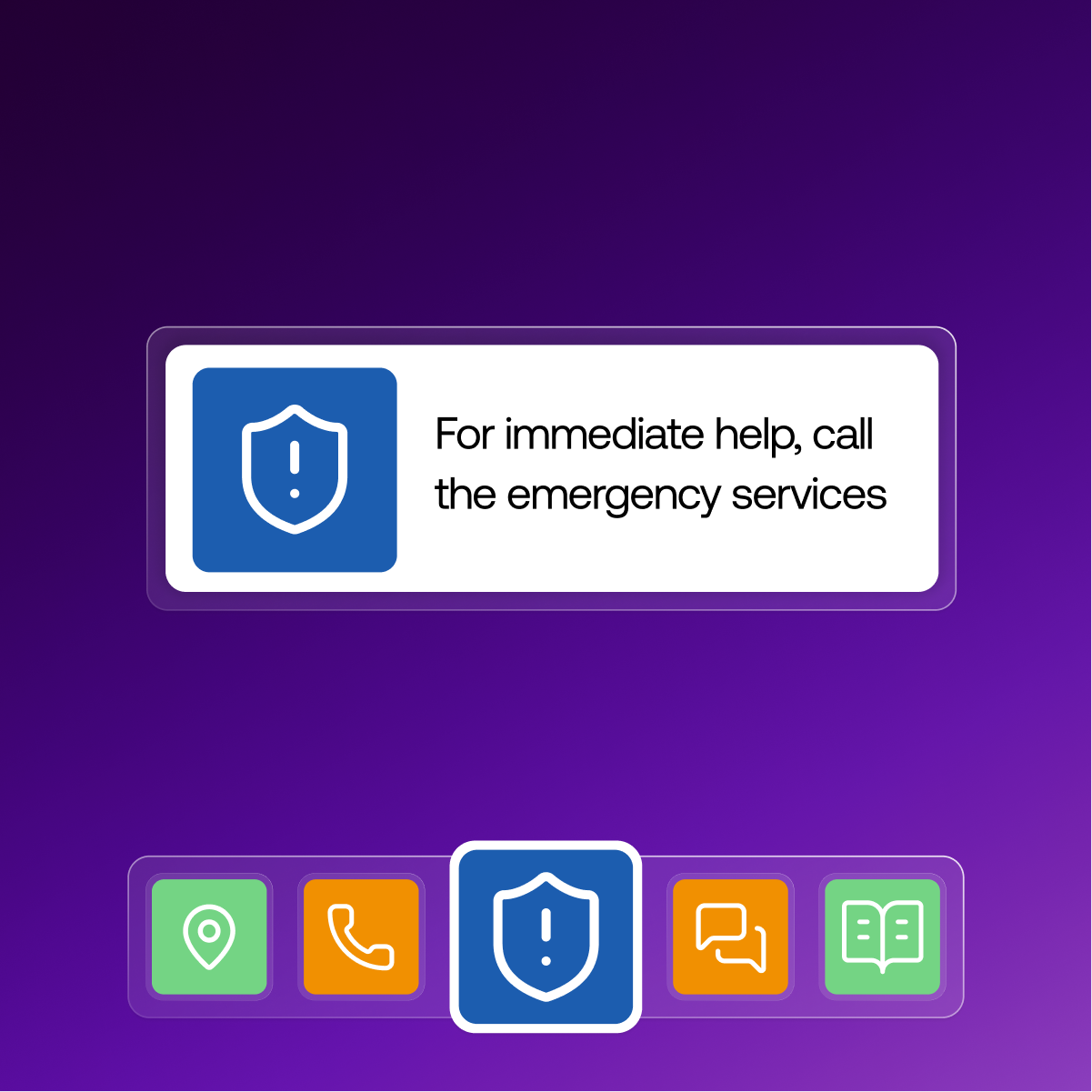Protect your colleagues from harmful online searches
50%
50% rise in the number of searches for suicide methods since 2019.
1st
Number one leading cause of death for people in the UK aged 20 - 34 is suicide.
650
At least 650 suicides each year due to pressures at work
90 Minutes
Every 90 minutes, a person is lost to suicide.

Proudly partnered with





Putting your employee’s health first with front-line support
In the digital age, your employees are likely to use internet sources as a first resource in a crisis. Ripple is a discreet digital tool that responds to harmful online searches, intervening when they need it most.
It works without making your IT systems vulnerable to attack or collecting data on your organisation.
Digital crisis intervention
Safeguard individuals experiencing mental health struggles at a time when they are most vulnerable.
Additional protection
Complement and enhance your existing wellbeing program, creating a safety net.
Privacy and security-first
Cyber Essentials certified. Does not collect, monitor or track any personally identifiable information.
Easy to install
On managed machines as a browser extension; on Wi-Fi networks to protect all devices and buildings. Support for IT teams in testing, pilots and roll outs.
Tech for good
Subscription fees help us keep the browser extension free for families and educators.
Trusted by your peers
Over 700 organisations have already adopted Ripple, including NHS trusts and county councils.
Ripple Browser Extension
The Ripple tool, as a browser extension, will protect your employees when making harmful searches on search engines on the relevant internet browsers. Prices differ according to organisation type and size.


Network Integration
Integrate the Ripple tool into your WiFi network to provide additional protection on your employee’s personal devices whilst they are on your network. Subscription costs include donations to Ripple, helping us keep the Tool free for families and educators.
Completely secure
Ripple monitors user searches for the sole purpose of identifying harmful terms, and intervening with support. We do not see, share, or save anyone’s search histories or identifiable personal data.
Ripple cannot report on data within your organisation. The purpose of the Ripple tool is to provide crisis intervention and immediate signposting to mental health support. This is where and when the person seeing these details, decides whether to follow that redirection, a personal choice.
We have thought long and hard about the possibility of collecting data analysis within organisations who have deployed Ripple. After careful consideration, we have come to the decision not to develop versions of Ripple which could report analysis for a specific company or organisation. The reasons for this decision include the following:
- Sensitivity - self-harm and suicidal ideation is a very sensitive subject. Reporting back on someone’s search history may have an adverse effect on the individual who is experiencing mental health crisis.
- Data Protection – feedback from our users, lived experience panels and clinicians has shown a strong preference for data protection, meaning we should not gain any access to information that could identify a person or their intentions.
- Personal Choice – Ripple provides an interception when an individual is conducting harmful online searches. Is it down to the individual as to whether they choose to utilise the support offered by Ripple or continue their search. We are not able to block people from accessing content outright, but we can provide support to individuals at their most vulnerable point in the hope they choose to utilise it.
Customer data is something we actively seek to avoid, at every turn. Our mission is to get Ripple onto as many machines as possible and to provide a vital safety net of support if somebody is researching a way to end their own life.
- Please let us know how many machines you will be deploying Ripple onto
- Please let us know what browser you will be deploying Ripple onto
- Please let us know what email address to invoice to Please liaise with your IT department to deploy the extension en masse.
There are three primary ways to get the extension onto managed machines:
- GPO (Group Policy Object)- You can force install a browser extension on Chrome and on edge using this method
- Force installs through browser management. Both Google workspace and Microsoft 365 have methods for this
- Using a third-party management tool (of which there are many – if your organisation does not use one, this is not an option to consider)
Have a look on our website under ‘The Communications’ to think about how, when and if you’d like to publicise our partnership and the positive step you’re taking to protect your colleagues wellbeing and mental health.
Ripple is not able to determine any organisational or individual identifiable data from the metrics that are collected. However, we can provide very high-level organisational information in the sense that we could tell you how many times Ripple has been ‘activated’ within your region.
Yes. We have a snooze functionality within the Ripple tool that enables the tool to be 'switched off' for certain users if they are required to conduct online searches relating to self-harm and suicide for legitimate reasons. This functionality is available on a case by case basis and can be requested by emailing info@ripplesuicideprevention.com.
This is at the discretion of the organisation. Each organisation can choose to inform their colleagues about the deployment of Ripple or be discreet about the installation and ensure the tool sits in the background.
Incorrect – someone who is experiencing a mental health crisis will not be thinking about what device they are searching on, as to them, they won’t be here to experience the consequences. Our data and analytics demonstrate that, sadly, harmful searches of this nature are conducted at home, at work and on the move.
Plus, Ripple also protects vulnerable individuals facing a broad range of mental health challenges and life struggles, including:
- Autism
- Bereavement
- Divorce and separation
- Domestic abuse
- Eating disorders
- Financial struggles
- Gambling addiction
- Grooming
- LGBTIQA+ struggles
- Military to civilian transition
- Substance misuse
- Suicide and self-harm
This approach is grounded in evidence showing the close links between these challenges and suicide risk.







